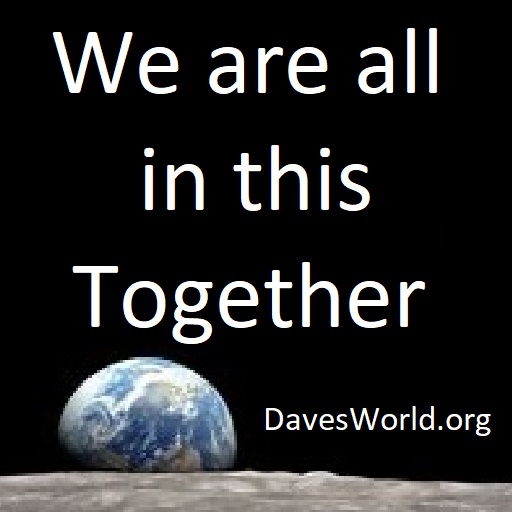The Obstacles of Nationalism
… and Racism,
Published by the Catholic Church on
26 March, 1967
“62. There are other obstacles to creation of a more just social order and to the development of world solidarity: nationalism and racism. It is quite natural that nations recently arrived at political independence should be quite jealous of their new-found but fragile unity and make every effort to preserve it. It is also quite natural for nations with a long-standing cultural tradition to be proud of their traditional heritage. But this commendable attitude should be further ennobled by love, a love for the whole family of man. Haughty pride in one’s own nation disunites nations and poses obstacles to their true welfare. It is especially harmful where the weak state of the economy calls for a pooling of information, efforts and financial resources to implement programs of development and to increase commercial and cultural interchange. . . . and Racism
“63. Racism is not the exclusive attribute of young nations, where sometimes it hides beneath the rivalries of clans and political parties, with heavy losses for justice and at the risk of civil war. During the colonial period it often flared up between the colonists and the indigenous population, and stood in the way of mutually profitable understanding, often giving rise to bitterness in the wake of genuine injustices. It is still an obstacle to collaboration among disadvantaged nations and a cause of division and hatred within countries whenever individuals and families see the inviolable rights of the human person held in scorn, as they themselves are unjustly subjected to a regime of discrimination because of their race or their color.”

When this was written, the Second World War may have been still on their minds, so it’s natural that these men were thinking, at least in part, of Nazi Germany and the violence and atrocities that the Vatican had been reticent to condemn. From my perspective, there seems to be little difference between young and old countries in this regard and I fail to see the distinction that the Vatican made between them.
The old nations of both Vietnam and Afghanistan were resolute in resisting the racism, nationalism, and dogma of “Communist” and “anti-Communist” invasions and occupations, and the nationalism and racism of the United States, a new nation, has been well-documented as well.
This distinction notwithstanding, I welcome these two paragraphs in the Encyclical. However, I think that the issue of invasion and colonization should be condemned even more harshly than nationalism and racism as a plague that continues to create and exacerbate conflict and suffering. You find it in this encyclical in bits and pieces, but they could not bring themselves to whole-heartedly condemn this ongoing intolerance and injustice which sits at the center of many problems we’re facing today.
I also see a problem in the favoring of modernization without affirming societies’ rights to resist it and retain traditional values and practices. In the 50 years following this publication, there have been dizzying cultural changes, not all of which might be considered desirable by all cultures, nations, tribes and religions. I think a lot of the unrest today stems, at least in part, to the speed at which everything is changing. Immediate access to information and the availability of instant gratification with transportation, information, food, and entertainment clamoring for our attention and our money from smart phones and computers is changing us in ways we might never have imagined. Groups and societies that cling to old ways and old traditions must have equal rights and equal respect from those of us with smart phones, personal computers, and instant internet access, not to mention AK-47s or AR-15s.
The missing prejudices not disparaged include sexism and misogyny, but that’s to be expected from this all-male group of “world leaders.” Even if they wanted to include women in the College of Cardinals, I think they would risk strong and widespread reaction, both positive and negative. This is an inherent problem with dogma; it is deucedly hard to alter, being anchored deeply in ancient culture, tradition, superstition, and writings.
Can we express this in a better way? Yes, racism and nationalism have given us wars and violence ad nauseum, but most people cannot see the harm in their own biases. Certainly this exclusively male group hasn’t spoken out against their own consistent bias against girls and women. They haven’t significantly modified the biased and obsolete marriage contract, for instance.
The phrases “tolerance for ALL our differences” and “equal rights and obligations under the laws of men, women, and God.” come to mind. The laws of men ruled for ages – certainly through the Dark and Middle Ages when the Catholic Church and its Pope reigned supreme. Can we even begin to talk about the laws of women? What laws might women impose on us were they given a voice and power equal to our own? What might nuns say if given the freedom to speak their hearts and minds openly and without censorship or censure?
Nor have these men been outspoken about the Bible’s strong bias against homosexuality. What changes are needed to “fix” this problem that crops up each and every time a child with a built-in attraction to persons of their own gender arrives in a family, an event that occurs regularly and, as I see it, fairly randomly? This is a normal part of our nature and might be treated fairly and justly rather than shamed and condemned. Can they expunge Leviticus 18:22, Leviticus 20:13, 1 Corinthians 6:9-11, and Romans 1:26-27 from The Holy Bible?
When looked at more closely, there are a number of intolerances buried in scripture and embedded deeply in the fertile soil of Vatican City. Again, these well-meaning and learned men are seeing things through a flawed lens that biases and truncates their awareness – as do all of us!
©David N. Dodson, September, 2019, Phoenix, AZ
